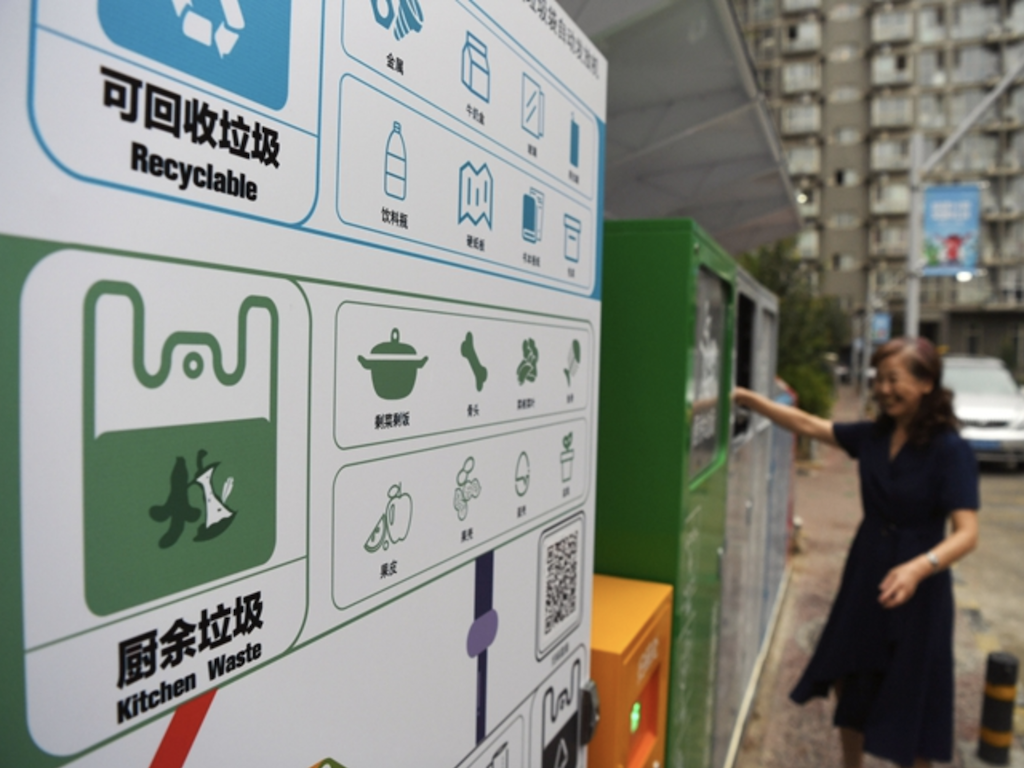Colourful Sorting Bins Successfully Encourage Beijing Residents To Curb Waste Crisis With Fines For Non-Compliers
3 Mins Read
Household rubbish sorting is now mandatory in Beijing, the capital city of China. It is the latest of 16 cities that have enforced the regulation, as a part of the country’s wider efforts to curb its monumental waste crisis. While the move is a step in the right direction, the bigger problem of our overconsumption and convenience culture that is the root cause of the crisis is left unresolved.
The citywide household trash sorting policy, which was first proposed last year, has officially been implemented in Beijing on May 1. Under the new rules, Beijing’s 21 million residents will need to sort their household waste into four designated categories – recyclable waste, hazardous waste, household food waste (also known as “wet waste”) and residual waste.
Colour coordinated waste bins are now dotted around the capital, and the authorities have deployed community volunteers to assist citizens. Failure to properly adhere to the disposal rules could result in individual fines up to RMB200 (US$28), but corporations that do not comply will face fines between RMB1,000 – 50,0000 (US$141 – 7000). To ensure that the rules will be followed, citywide inspections will take place around the end of July.
The new waste classification policy will undoubtedly help reduce the astonishing amount of waste produced by Chinese cities. According to state statistics, Beijing residents produced an average of 27,700 tonnes of rubbish per day in 2019.
These regulations have already been enforced in 16 other major cities in the country, including Shanghai and Shenzhen. A total of 46 cities are slated to implement the new rubbish sorting rules in the coming months.
Chinese corporate giants have been quick to capitalise on the business opportunity presented by the new waste classification scheme, launching a number of tech solutions to guide citizens on the rules. In August last year, e-commerce behemoth JD.com launched a new AI-driven solution called “SnapShop” under their JD Finance app, where the application’s more than 300 million users can take a photo of their waste for the app to analyse and tell them where to dispose of it.
JD.com’s smart speaker, which works much like Amazon’s Alexa voice-activated device, is now also equipped with a function to advise users on how to properly discard household waste after verbally describing it.
While the new waste-curbing rules are promising, they may only suffice as a bandaid on the more pervasive global issue of our convenience and overconsumption culture, especially as e-commerce continues to rise amidst the pandemic. Even before Covid-19, e-commerce companies had been smashing sales records, with China’s annual shopping extravaganza Singles Day (November 11) that drew in a record-smashing total of US$38 billion in sales this year within a 24 hour window, topping the US$29 billion figure during Black Friday and Cyber Monday.
These numbers are likely to rise even more as online retail and food delivery becomes the norm for many across the world, due to coronavirus lockdowns, travel restrictions and social distancing measures.
We are in the midst of a global ecological crisis, from overflowing landfills to record-breaking temperatures that will spell disaster for life on earth if continued unabated – and our mindless unsustainable overconsumption habits are driving it. Without embracing a lifestyle that truly focuses on reducing, our planet will not sustain us.
Lead image courtesy of VCG.



